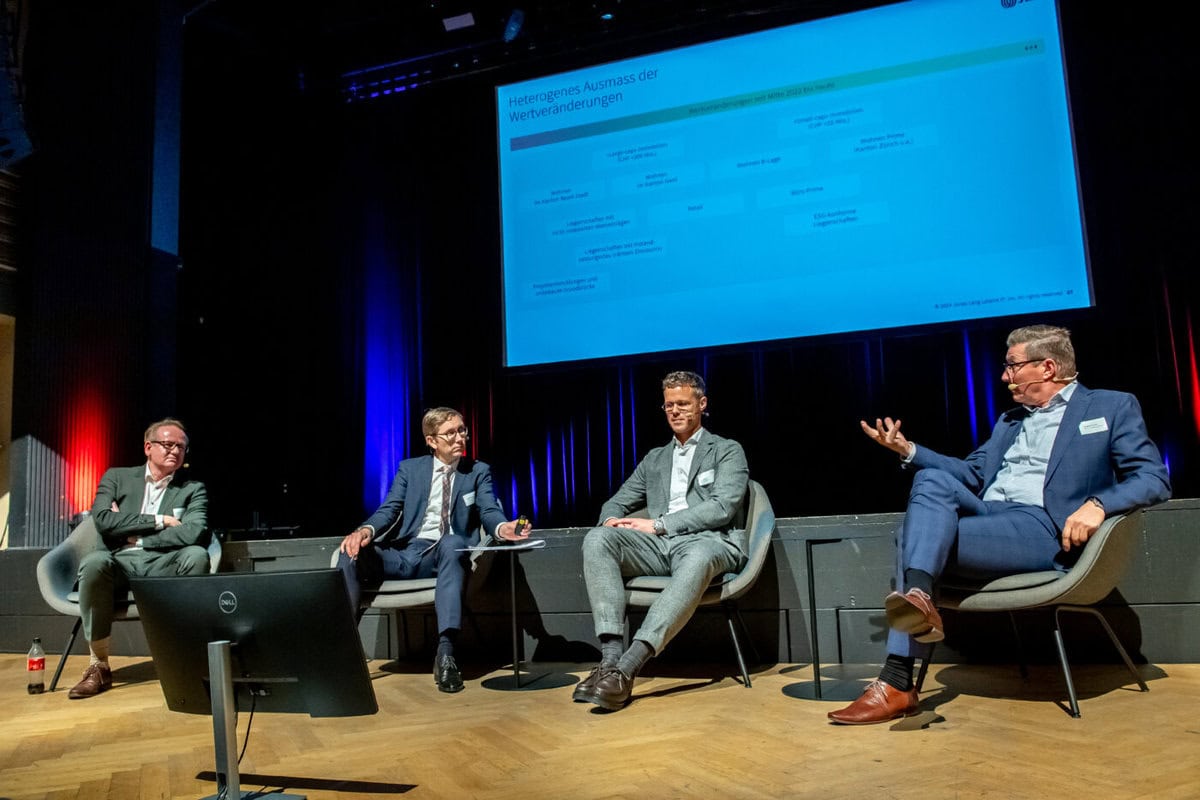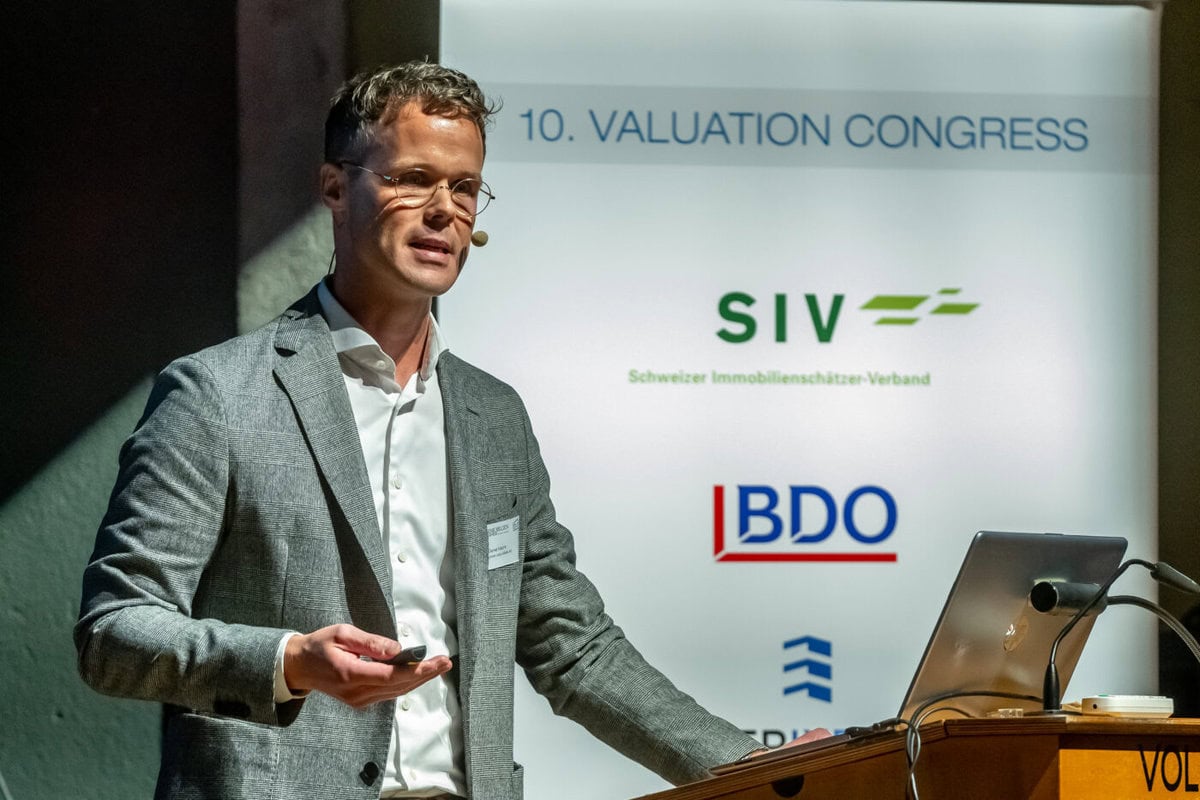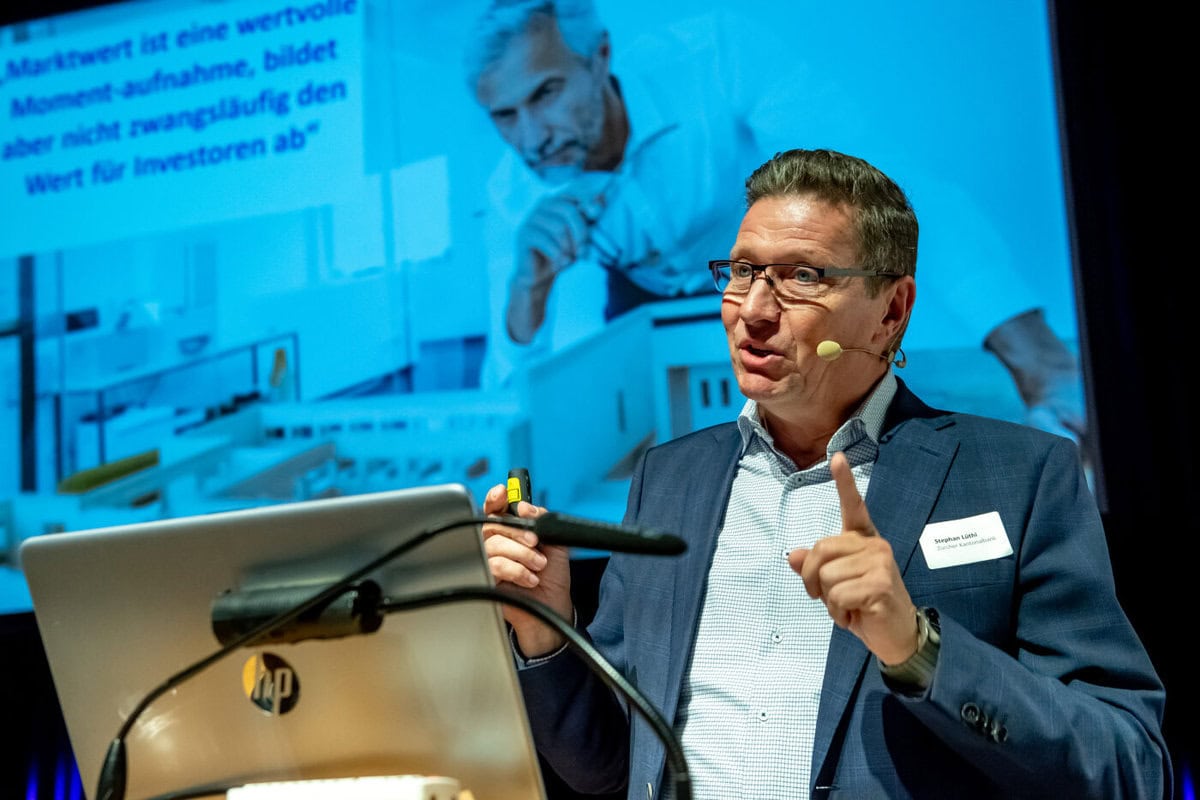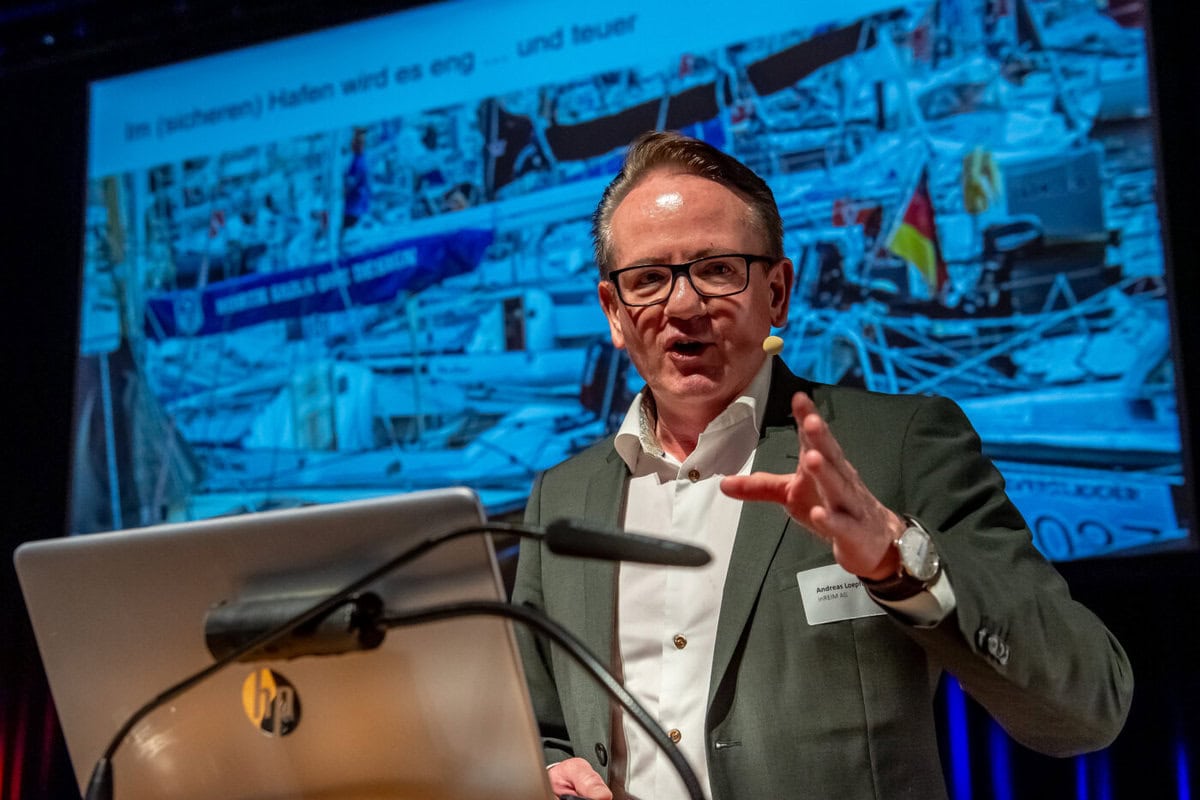Review of the 100th Swiss Real Estate Talk
The popular talk format celebrated its anniversary together with the SVIT assessors on a large stage, and presented itself - how else? - with an exciting edition. The title: "Pi mal Daumen 2.0: Immobilienbewertung in Korrekturphasen".

©️ Patric Spahni)
The reputation of "rocket science" does not necessarily precede the real estate industry, but there are certainly challenging topics within it. For example, there is the issue of valuation, as we saw a year ago when a "real estate discussion" was held on this topic. The "valuation" complex was predestined for a new edition, and the fact that it was intellectually stimulating was due to the great panel with John Davidson as moderator. Incidentally, it was also quite entertaining. This was due in no small part to the closing speaker Andreas Loepfe and the snappy theses he brought with him. He portrayed the practice of evaluation as a plaything of higher powers, as a victim of "narratives", with which Loepfe himself also presented a successful narrative. His view of the phenomenon of "evaluation" was just one perspective among several that the evening offered. The three perspectives were equally fascinating and justified - although they could not have been much more different.
Pure 'mark to model' - a myth
On the one hand, there was the perspective of objectivity - taken by the person who is closest to the topic: the valuers themselves. It was once again Daniel Macht, Head of Valuation & Advisory at JLL Switzerland, who represented the guild on the podium. Once again, he had to defend them against the accusation that valuations are simply too high. But the yields for apartment buildings and offices in Zurich or Geneva, which are indeed the lowest in Europe, appear in a different light in relation to the risk-free investments. As Macht showed, the risk premiums in Geneva and Zurich are among the highest in comparison, and for residential real estate they are even the highest. His conclusion: Switzerland is appropriately valued. Macht considers it a "myth" that valuation practice in this country follows the "mark to model" approach too closely, i.e. is too far removed from the market. It is true that valuations in Switzerland are generally model-based - but according to Macht, this does not mean that hard data is not included, from operating costs and market rents to purchase yields from comparable transactions. Unobservable input parameters only play a role if there is no observable market activity. And the situation has changed considerably since the last "Real Estate Talk" on this topic. The investment market has picked up and many players are hungry to invest again. Data material from actual deals is available, as Macht assured us. The valuer showed that valuations are systematic and not subject to arbitrariness by taking a look at the different property types. According to this, it is not the case that values have developed in the same way for the entire market since mid-2022. While prime office buildings, for example, have increased in value since then, houses in need of maintenance, for example, have gone in the opposite direction. This suggests that there are objective reasons driving the valuation.

©️ Patric Spahni)
Packaging also counts
Stephan Lüthi takes a slightly different view of the matter. The perspective of the Head of Real Estate Asset Management at Zürcher Kantonalbank could be described as pragmatic; after all, the question of meaning is more in the background for the investor. The decisive factor for Lüthi is that the market value is needed, it is a valuable snapshot. Without a valuation, no NAV can be calculated and no premium - all things that are needed. For Lüthi, however, fair value is not a value that makes sense on its own. Instead of value in itself, there is only value for someone, and this value looks different for every investor. For one person, an abandoned shopping center may be worthless, but not for another who knows how to revitalize such properties. Fair value versus investment value - this is a point that is so important that it bears repeating. Among the aspects that influence values, Lüthis this time also mentioned the form of the respective vehicle. The value of one and the same underlying can take a significantly different course over the years - depending on whether it is packaged as a "real estate company" or an "investment foundation". This is also an exciting thought with regard to the question of what valuation can - and cannot - be.

©️ Patric Spahni)
Narratives make real estate expensive
But then the curtain rose for closing speaker Andreas Loepfe, who played the advocate diaboli with relish. The starting point of his argument: the private sector is currently turning a big wheel on the market. Incidentally, this was an observation that Macht had already made previously and was able to impressively substantiate with data from his employer JLL (even if the definition of "wealthy private individuals" did not quite match up in terms of investment volume). Loepfe interpreted the hunger of wealthy private individuals for their own direct real estate investments as a reaction to the low returns offered by institutional investors. This in turn is due to a certain herd instinct, triggered and perhaps even controlled by powerful narratives - and this is where valuers come into play. Loepfe believes that successful valuers anticipate the narratives of their institutional clients. They are therefore caught in a mutually reproductive loop with them, as it were. This loop ultimately also includes the market, as it looks at the valuations so that, in Loepfe's words, "valuations reproduce their values". Loepfe described regulatory issues such as ESG, whose star seems to be falling in the USA, as well as the idea of the "safe haven" and the mantra of central locations, as narratives that drive prices. You may find Loepfe's perspective on things heretical, but he certainly takes a rather lofty view of things. Valuation standards such as IFRS are perhaps a little too sophisticated for valuers to be seen as willing enforcers. And an investor like Lüthi certainly gives the impression of not only being at the mercy of narratives and regulatory issues, but also of playing them and registering precisely when opportunities arise off the beaten track. But it is inspiring when supposed certainties are questioned with good arguments, and simplification is allowed. The fact that Loepfe was punished by the brilliantly presented moderator John Davidson by being assigned a side seat on the discussion panel - "you polarize", he said - was of course a joke.

Incidentally, the anniversary edition of the "Real Estate Talks" took place this time as the closing event of the SVIT Valuation Congress in Zurich's Volkshaus. The SVIT valuers' offer was a nice gesture, and it shows the importance that the format now enjoys in the industry. There was cake, a raffle and, of course, words of welcome, but above all the event itself showed why it is so successful: it is always the content that takes center stage.



























